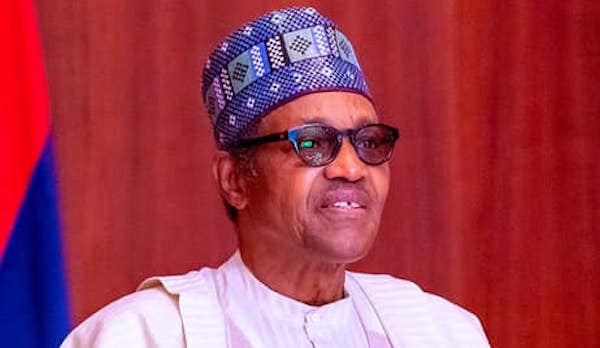Aso Rock Watch
ASO ROCK WATCH: Dreaming made-in-Nigeria military weapons. Two other talking points

President Muhammadu Buhari last week directed the Ministry of Defence to establish a Military Industrial Complex.
The industry, according to the President, will be saddled with the task of producing local weapons to boost the capacity of the Armed Forces in fighting various security challenges across the country.
Buhari’s directive has since generated discussions and stirred questions begging for answers.
This and two other stories that emanated from the seat of power dominated public discourse last week.
Dreaming made-in-Nigeria weapons
President Buhari on October 11 asked the Ministry of Defense to commence the production of local weapons to fight the security challenges in the country.
Buhari, who gave the directive at an event in Abuja, said: “To address our over-dependence on other countries for military equipment and logistics, I have instructed the Defence Ministry to create a modest industrial complex for the local production of weapons to meet some of the requirements of the country’s Armed Forces.”
Buhari’s directive is, by all means, a welcome development.
Besides being a well-thought-out strategy aimed at reducing Nigeria’s over dependence on foreign nations for the supply of weapons, it shows that the country may be warming up to break new frontiers in technological development and innovation.
This fresh move, however, begs the question of what has become of the Defence Industry Corporation of Nigeria (DICON) which was set up more than fifty years ago to meet the country’s needs in arms production.
Therefore, inside Buhari’s directive, lies a couple of questions:
1, How much has Nigeria sunk into DICON, and why is that institution barely operational?
2, Where is the roadmap for President Buhari’s dreams?
In the absence of immediate answers, this move may yet be a pipe dream.
Two other talking points
Osinbajo’s encomium on Buhari
Vice President Yemi Osinbajo on October 10 described President Buhari as Nigeria’s most popular and credible politician in generations.
Osinbajo had said: “The President is possibly the most popular Nigerian politician that we ever had in generations.
“He is possibly the only person who can go into a place or somewhere without bossing people to gather and they will come and listen to him speak.
“We need that level of credibility to be able to solve problems in our country.”
Read also: ASO ROCK WATCH: Osinbajo’s push for young candidates in 2023. Two other talking points
Osinbajo, like every other Nigerian, is entitled to his opinion and has the right to sing his boss’ praises.
No doubt, the President’s much-vaunted integrity and spartan lifestyle remain strong selling points. However, these unique attributes, regrettably, have not translated to good fortunes for the country.
Under the President’s watch, Nigeria has moved from Africa’s largest economy to the poverty capital of the world.
On security, the Boko Haram jihadists and bandits have turned the North-East and North-West into killing fields while Nigeria is more divided than ever over perceived marginalization and injustice by some sections of the country.
It is, indeed, difficult to locate how much of Buhari’s celebrated values have impacted the larger Nigerian society.
Buhari’s charge to Ministers
President Buhari on October 12 charged members of the Federal Executive Council (FEC) to work harder and ensure the fulfillment of his administration’s promise to Nigerians.
At a retreat for members of the executive, he had said, among others: “Distinguished participants, the discussions at the retreat have prompted the need for us to ramp up implementation on the deliverables. We must close the gaps in our implementation efforts to ensure that we attain set targets by 2023.”
The decision to periodically review the performance of a workforce is a core people management principle.
In this regard, the President may just have delivered on the most basic of expectations by the Nigerian people. An applause would be earned if these review mechanisms lead to higher productivity.
Unfortunately, most Nigerians have continued to score the government low. With his tenure gradually drawing to a close, the President must ensure that his team delivers against set targets.
However, the critical question that begs for answer is whether Mr President actually set any targets for his team. It would seem from the perception of Nigerians that there exits a yawning gap in that area.
Join the conversation
Support Ripples Nigeria, hold up solutions journalism
Balanced, fearless journalism driven by data comes at huge financial costs.
As a media platform, we hold leadership accountable and will not trade the right to press freedom and free speech for a piece of cake.
If you like what we do, and are ready to uphold solutions journalism, kindly donate to the Ripples Nigeria cause.
Your support would help to ensure that citizens and institutions continue to have free access to credible and reliable information for societal development.

























